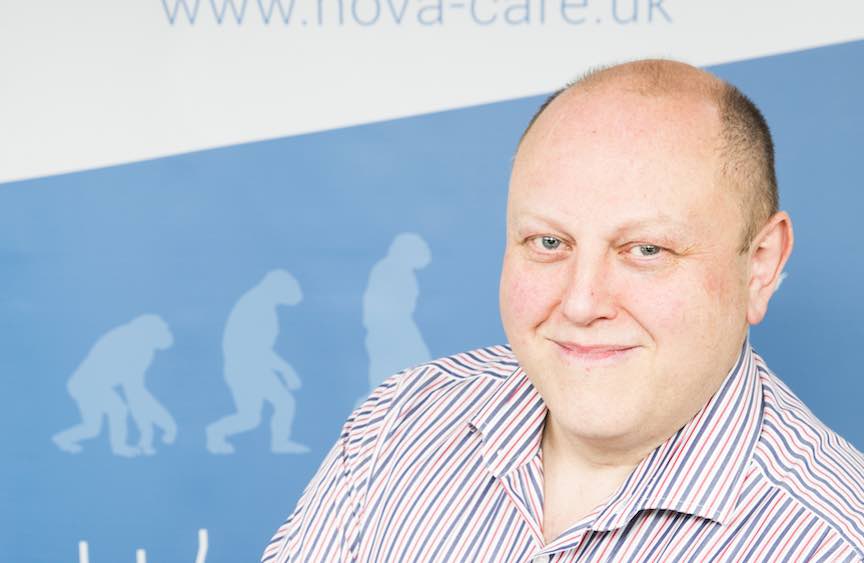
Stephen Wilson, CEO and co-founder of Edinburgh-based health and social care recruitment software-provider Novacare, says everything possible must be done to retain the workers that come from the EU to work in the UK’s health and social care sectors
What does Novacare do and have you seen any impact from Brexit?
Nocacare supports the health and social care sector, which employs around 1.2 million people across the UK and 8% of that workforce comes from the European Union. As soon as the Brexit vote happened some of these employers lost 40% of their EU staff. Currently, there are more people requiring support in the UK than there are staff to provide it. There are 110,000 care vacancies in the UK and that number is growing every year as more and more people become elderly and require support. We need to do everything possible to ensure that we retain the people from the EU who come to work with us, and we need to continue to encourage people from other countries to come and work in the UK. For some reason it appears that a career in care is not as attractive to people living in the UK as it is to some other European citizens.
What are you doing to try and encourage the European citizens that are here to stay?
We are helping them first of all. We are keeping them up to date with what is actually happening with Brexit because that changes on a daily basis. The Home Office guidance changes on a weekly basis. So we are supporting them through the process, helping them apply for visas and then looking at continuing to invest in them as individuals, not just regarding their terms and conditions of employment, but also their career prospects and their ongoing education so that they become an integrated member of people’s companies.
We also have a care at home business, where we actually provide care to people in the community and we employ a large number of people from the EU there. I am seeing the first-hand value that people from the EU bring to the vulnerable group that we provide support to. That carer may be the only person that that person sees ever on a day-in-day-out basis, because they are living in their own home and we are the only visitor to go in. So to bring somebody in with a different culture and different experience lights up their day, it really does.
What do you think the Government should be doing to help SMEs keep running smoothly through Brexit?
The Government in Scotland has offered a Brexit grant support, which allows companies a small amount of money to get consultancy, which is great. More than that what they need to do is to look at the immigration policy for specific key roles within the UK and I think that one of those key roles has to be within health and social care. There are already people lying in hospital because they can’t get out to live in their home with support, just because there are so few people willing to work in the sector. The Government should encourage more people to work within health and social care, run a national recruitment campaign for it and give them preference if there is going to be a points-based immigration policy.


























































































